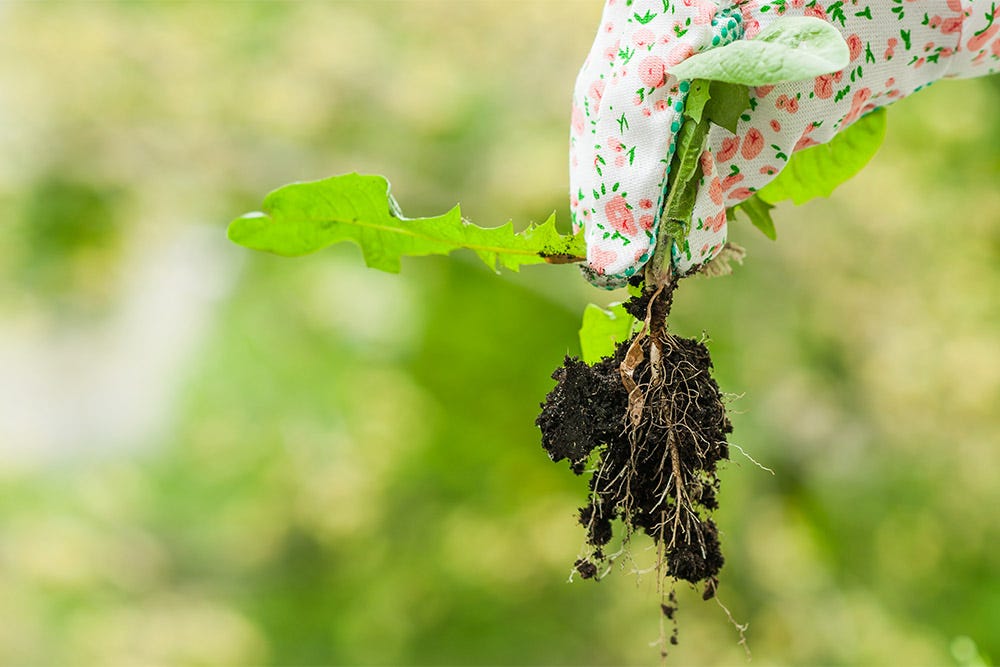- Maintenance tips & tricks
- 4-season garden care advice
- News from the gardening world
- STIGA innovations & new product launches
Natural remedies, plants good for your health
Fresh air, sunlight, staying active – gardening has multiple health benefits. But what about the plants we grow? Read on to discover common plants with properties linked to health and vitality.

Garlic
The ancient Greek physician Hippocrates is said to have prescribed garlic for a range of medical conditions. Modern research has found garlic to contain chemical compounds which inhibit the growth of bacteria, viruses and mould, as well as reducing inflammation and protecting the heart.
How to use it
Garlic is most beneficial when eaten raw, but tablets tend to be more popular due to its intensely strong flavour.
Gardening tips
Best planted in late autumn or early winter, garlic can be sown directly in the ground. Choose a warm, sunny spot in fertile, well-drained soil.
Echinacea
Echinacea is a popular remedy used to shorten the duration of colds and boost immunity during the winter months. The entire plant is loaded with natural compounds which help to protect cells from damage.
How to use it
Echinacea flowers, leaves, stem and roots can be turned into tinctures, tablets and tea.
Gardening tips
Resistant to adverse weather, echinacea can be planted all year round including winter, as long as the soil is not frozen. It grows easily in most soils and does not require stalking due to its sturdy stems.
Chamomile
Chamomile has been used for centuries to aid relaxation and improve sleep quality. Its calming properties are linked to a natural chemical called apigenin found in chamomile flowers.
How to use it
Flowers can be dried and steeped in water to make a refreshing herbal tea.
Gardening tips
The two most common varieties are:
-
Roman chamomile – a perennial evergreen which grows to around 20cm
-
German chamomile – a hardy annual which grows to around 50cm.
Both varieties can be planted in full sun in well-drained soil. Cut back regularly and deadhead to prevent self-seeding.
Ginger
Known to help with nausea, ginger has long been used as a way to reduce sea sickness.
How to use it
It can be drunk as a tea or taken in capsule form.
Gardening tips
You can plant shop-bought ginger as long as it has developing stems. Best grown in shallow compost in a frost-free, warm and sheltered spot like a greenhouse or sunny window ledge.
Ginkgo
Ginkgo has been linked with improving memory, and research is underway to explore whether it could assist with the prevention of dementia.
How to use it
Ginkgo extract is made from Ginkgo Biloba’s fan shaped leaves.
Gardening tips
Ideally planted in well-drained soil in full sun. Incredibly hardy, Gingko rarely suffers from disease which makes it a great choice for urban gardens.
Valerian
Used since the middle ages to treat insomnia, valerian contains a range of compounds thought to produce a calming effect on the body.
How to use it
Valerian root can be turned into teas, tablets and tinctures.
Gardening tips
Plant in moist soil with good access to sunlight. Valerian can grow up to 1.5 metres so is best planted in the middle or back of a border.

When it comes to weed control, chemicals are not the only solution. Natural weed control is an environmentally friendly alternative. Read our guide on eliminating weeds using what you already have in the kitchen.



















